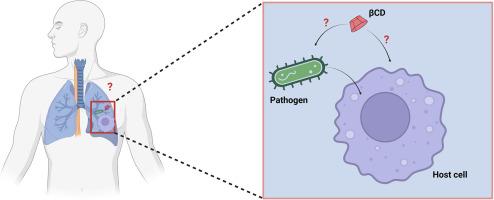Beta-cyclodextrins in infectious disease therapy: A review of their function beyond simple drug carriers
IF 6.5
Q1 CHEMISTRY, APPLIED
Carbohydrate Polymer Technologies and Applications
Pub Date : 2025-06-27
DOI:10.1016/j.carpta.2025.100921
引用次数: 0
Abstract
Cyclodextrins (CDs) are cyclic oligosaccharides derived from starch through enzymatic conversion. Over the past decades, CDs and their derivatives (dCDs) have attracted significant interest due to their remarkable versatility and distinctive physicochemical properties. Among them, beta-cyclodextrins (βCDs) and their derivatives (dβCDs) have emerged as particularly promising tools in the fight against infectious diseases, not only as drug delivery systems but also as active agents that modulate host-pathogen interactions. Recent studies have revealed their ability to modulate immune responses, disrupt microbial membranes, and interfere with quorum sensing, thereby limiting biofilm formation and related antimicrobial resistance. Therefore, in this review, we focus on the intrinsic properties of β-cyclodextrins and their derivatives in the context of infectious diseases. βCD-based compounds possess inherent biological activities that are increasingly being exploited for therapeutic purposes, including host-directed therapies, antimicrobial action, biofilm disruption, and vaccine development.

-环糊精在感染性疾病治疗中的作用:其功能超越了简单的药物载体
环糊精(CDs)是由淀粉经酶转化而得的环状低聚糖。在过去的几十年里,CDs及其衍生物(dCDs)由于其显著的多功能性和独特的物理化学性质而引起了人们的极大兴趣。其中,β -环糊精(βCDs)及其衍生物(d - βCDs)已成为对抗传染病的特别有前途的工具,不仅可以作为药物传递系统,还可以作为调节宿主-病原体相互作用的活性剂。最近的研究表明,它们能够调节免疫反应,破坏微生物膜,干扰群体感应,从而限制生物膜的形成和相关的抗菌素耐药性。因此,本文就β-环糊精及其衍生物在传染病中的内在特性进行综述。基于β cd的化合物具有固有的生物活性,越来越多地被用于治疗目的,包括宿主定向治疗、抗菌作用、生物膜破坏和疫苗开发。
本文章由计算机程序翻译,如有差异,请以英文原文为准。
求助全文
约1分钟内获得全文
求助全文

 求助内容:
求助内容: 应助结果提醒方式:
应助结果提醒方式:


